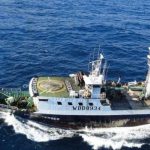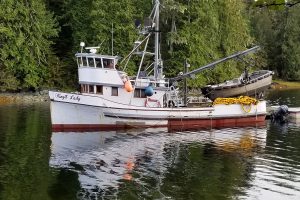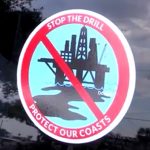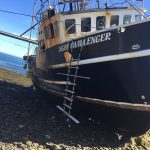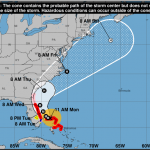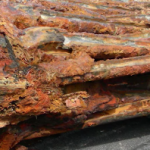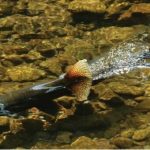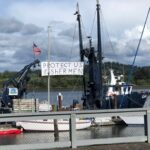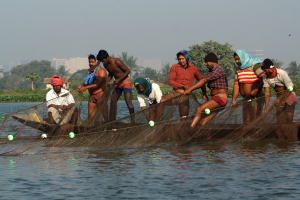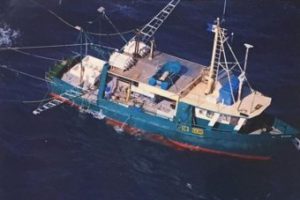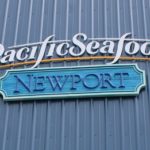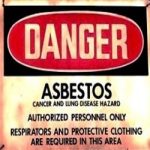Daily Archives: May 22, 2018

Coast Guard monitors efforts to confirm location of sunken vessel in Willapa Bay
Coast Guard personnel continue to monitor the response to the report of the overdue fishing vessel Kelli J after a boat crew contracted through the vessel owner’s insurance company located a large unknown object in the area of a previously sighted pollution and debris in the water of Willapa Bay, Tuesday. Global Diving and Salvage personnel have been contracted by the insurance company to dive on and identify the object Wednesday, and assess what actions can be taken for potential salvage. Around 3:35 p.m. on Saturday, watchstanders at Coast Guard Sector Columbia River received a report that the operator of the Kelli J was overdue from a fishing trip. The report came from the vessel operator’s wife, who stated he was due to return at 12:30 p.m. that day and confirmed his vehicle was still at a Nahcotta marina with no vessel in sight. >click to read<23:39
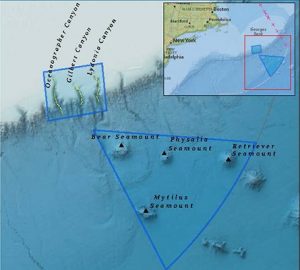
If courts are ever going to strike down an illegal national monument, this’ll be it
Often, it seems the federal government has it out for the English language. The President and federal agencies routinely twist the words in statutes beyond recognition. For instance, PLF has long challenged EPA’s bizarre claim that dry land is “water” under the Clean Water Act. The government’s no fan of consistency, so it should come as little surprise that the President also claims the ocean is “land” when that suits his purposes. In Massachusetts Lobstermen’s Association, et al. v. Ross, PLF is challenging the designation of 5,000 square miles of ocean as the Northeast Canyons and Seamounts Marine National Monument, under a statute that expressly limits designations to “land owned or controlled by the Federal Government.” The government has moved to dismiss that case arguing that the President can essentially do whatever he wants, the language of the statute be damned. Today, we filed our response to that motion. In our brief we explain that: Pacific Legal Foundation >click to read<21:52
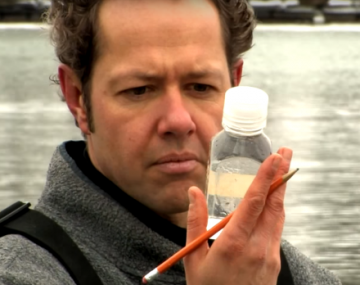
WWF Warns All Fish May Go Extinct Within Next 30 Years
In a world where the global population is close to 7.5 billion people, you can expect that the demand for food is similarly climbing at an exponential rate. The more people there, the more mouths there are to feed. One of the industries that is suffering from this increase in demand for food is the fishing industry – and in return, people are turning towards unsustainable fishing methods. The WWF warns us of a looming collapse of the ocean’s various ecosystems in the next thirty years if this kind of dangerous fishing practices continue. In a 2006 study published by Worm, et. al., >click to read<16:23
November 2, 2006 – Seafood May Be Gone by 2048, Study Says – >click to read< From FishnetUSA – This was the Pew produced headline that got extensive media play starting in November of 2006. “Unless humans act now, seafood may disappear by 2048, concludes the lead author of a new study that paints a grim picture for ocean and human health.,, >click to read<
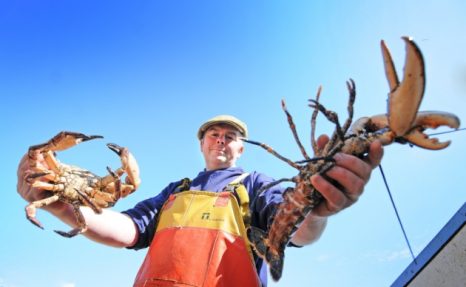
Fishermen assure crab consumers that stock downturn is “nothing to worry about”
The Beast of the East saw thousands of shellfish washed up along the East of England coastline, but wreaked havoc on the sea floor as well. As well as this, due to an uncharacteristically cold winter, the crabbing season started later than usual. “I’d say we’re catching about 60% of what we’re usually catching,” said Wells crabber Andy Frary. “There’s a number of factors which could contribute to this.,, Shellfish including crabs were reported to have been washed up all along the north Norfolk coastline following the February storms, in places such as Cromer, Sheringham and Wells-next-the-Sea. >click to read<14:04
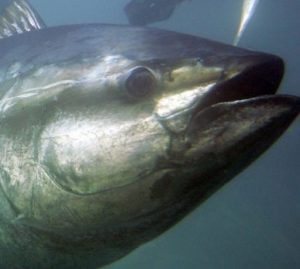
Con groups disagree with NOAA decision to remove Western Atlantic bluefin from overfished list
The decision by NOAA Fisheries to remove Western Atlantic bluefin tuna is not sitting well with conservationists. Last week, the agency released its Status of U.S. Fisheries report for 2017. In it, officials announced that the number of stocks on the overfished list had dropped to 35, an all-time low. The Western Atlantic bluefin was among six stocks removed from the overfished list. NOAA, in a press release, said “significant scientific uncertainty” about the stock after last year’s assessment led to the ruling. >click to read<13:29
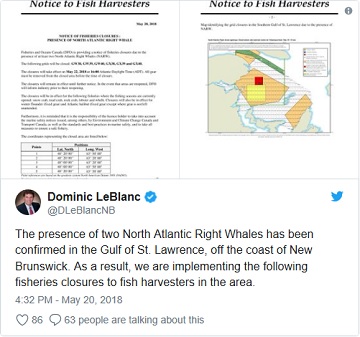
Fishermen’s frustration grows as reality of protecting whales sinks in
The president of the Maritime Fishermen’s Union says there is “increasing frustration” among his members after a new temporary closure of an area east of Miscou Island on the northern coast of New Brunswick. The decision by the Department of Fisheries and Oceans comes after a surveillance flight spotted two North Atlantic right whales swimming in the area. Fishermen have until Tuesday at 4 p.m. to remove all of their gear during the 15-day closure, which could be extended if whales remain in the area. Carl Allen said those who have been fishing in the area that will be closed are in a “severe panic.” >click to read<12:26
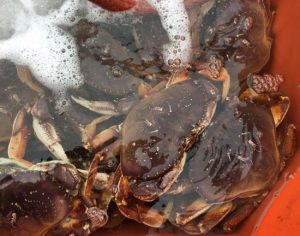
Local fisherman takes advantage of being able to sell crab on Kodiak docks
Fresh seafood seems like it’d be an easy thing to get in a fishing town like Kodiak. But it wasn’t until recently that it was legal for fishermen to sell what they’ve caught right off their boats on local docks.,, Brian Blondin is holding a Dungeness crab and pinching its shell to see if its ready to eat. “You always gotta feel make sure the shells are hard.” He’s one of the first people to take advantage of the City of Kodiak allowing fisherman to sell what they’ve caught on its docks, which has only been legal since late last year. >click to read<10:54
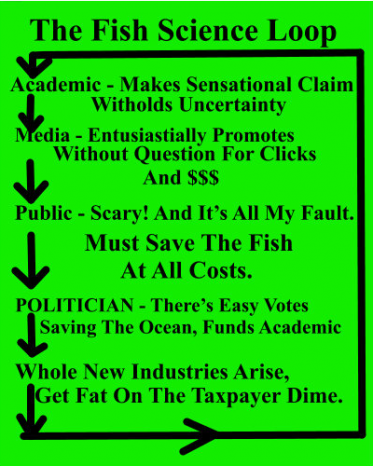
Lost Crab Pots: Not as Bad as We Thought?
Back in 2016, a team of scientists from the Virginia Institute of Marine Science said watermen lost an astounding number—145,000 crab pots, leading to the deaths of millions of dollars’ worth of crabs trapped in those pots. But a different panel of scientists says it’s not as bad as they originally thought. Glenn Davis, who chairs the Chesapeake Bay Stock Assessment Committee, told a winter meeting of fisheries managers that the VIMS numbers are wrong.,,, But once the VIMS study was out there, it was hard to take back. And sure enough, somebody tried to monetize it.>click to read<09:05

































